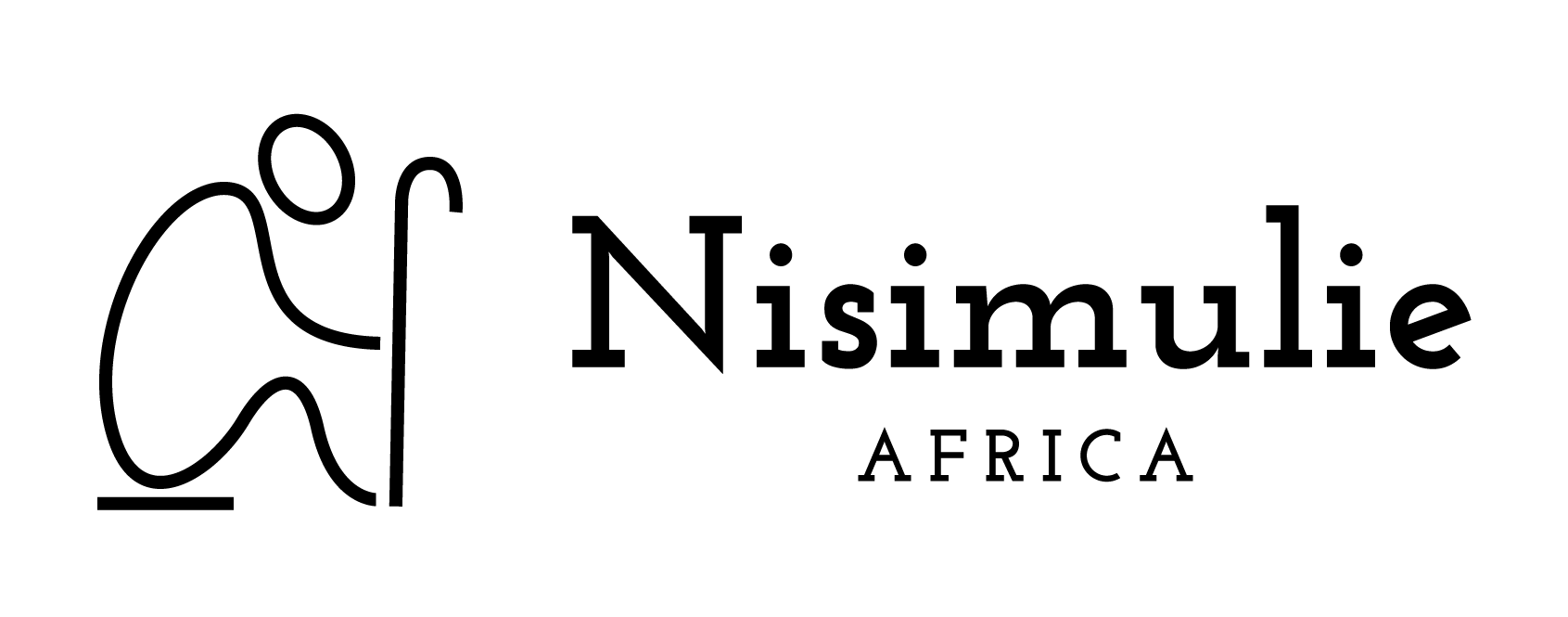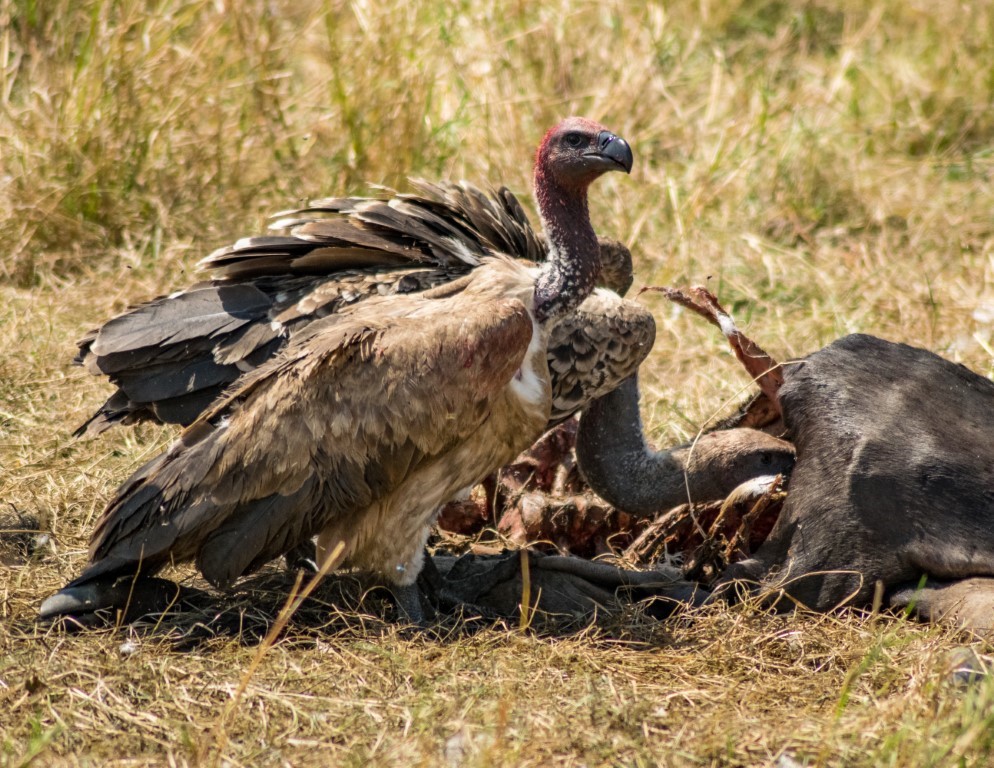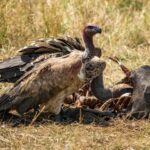This feeding frenzy was the first wild sighting we were presented with on our recent visit to the North of the Serengeti in Kogatende Area.
As we drove off the airstrip where our guide Tito had just picked us up, we took notice in the blue skies above us just how many vultures were moving towards and circling a certain area. Without any hesitation, we followed and let the vultures lead the way. As we approached the area, we noticed a few vultures sitting on surrounding trees.
We kept making our way towards the scene when a potent odour hit us like a train! Turning up on flat area next to a swamp, a carpet of vultures was sitting on the ground and right next to them, sure enough, the rotting smell was coming from a deceased wildebeest. This was a sighting none of us had ever experienced before and it left us in complete awe. Around this time every year the wildebeest migration is moving up north of the Serengeti as millions of migratory ungulates try to make it across the Mara river on their way to the Maasai Mara in Kenya.
We quickly made our way closer and positioned ourselves as we watched this spectacular scene play on.


By the look of things (and as we later confirmed) the dead beast was a kill by a pride of nursing lionesses within the vicinity. We stared in amusement at the vultures aggressively hissed, grunted, and chattered as they fought to gouge away at the rotting carcass.
Among the species of vultures present at the scene, I was particularly drawn to one specific species.
The Rüppell’s vultures (also referred to as the Rüppell’s griffon vulture, Rüppell’s griffon, Rüppell’s griffin vulture), named after a German zoologist and explorer Eduard Rüppell, is a big vulture ranging across a good part of central and eastern Africa. Being social birds, they nest in colonies of about 100 pairs in a mountainous habitat. They are scavengers, eating only carcasses and the remains of other dead animals.
Rüppell’s vultures have several adaptations to their diet and are specialized feeders even among the Old-World vultures of Africa. They have an especially powerful build and backward-pointing spikes on the tongue to help remove meat from the bone. An astounding sense of smell and incredible binocular eyesight are key senses in spotting food from miles away. Large wings spanning out to 8 ft / 2.5 m make the birds great flyers. They often fly at great altitudes, using strong winds or thermals for more efficient soaring. In fact the Ruppel’s vulture holds the world record as the highest flying bird at a swooping record of 37,000 ft / 11.28km above sea level, higher than Mt Everest’s highest peak by 7,971 ft / 2.43 km.
Despite all these great adaptations the Rüppell’s vulture population has been on steep decline over the years. Reasons for this include the impact of agriculture on their habitat, persecution and large-scale incidental poisoning. In West Africa, these birds have been greatly used in black magic practices.
Though oblvious to most, these birds are key keepers of our biosphere. Vultures, also known as nature’s clean-up crew, do the dirty work of cleaning up after death, helping to keep ecosystems healthy as they act as natural carcass recyclers. Vultures provide cultural and spiritual services dating back thousands of years, as well as recreational services in the form of ecotourism, particularly for bird-watchers and photographers. Conserving vultures also means aiding in conervation of other wildlife that co-exist in same bio systems as these majestic birds.
We highly advocate for conservation efforts towards these birds and the ecosystems they inhabit for the well-being of our planet. You can donatetowards this worthy cause by partnering with Vulture Conservation foundation (VCF).



